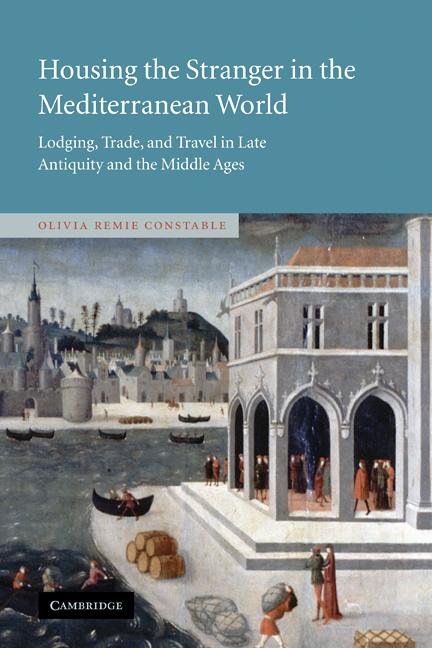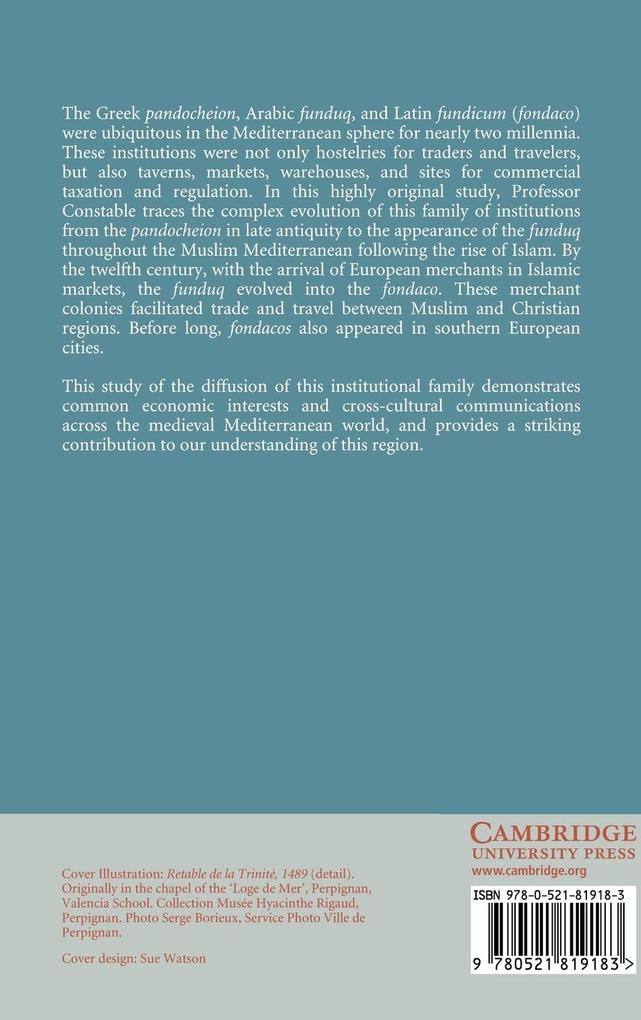
Zustellung: Mi, 11.06. - Sa, 14.06.
Versand in 1-2 Wochen
VersandkostenfreiBestellen & in Filiale abholen:
The Greek pandocheion, the Arabic funduq, and Latin fondaco were hostelries for medieval Mediterranean travellers that evolved into centers of trade between Muslim and Christian regions. Olivia Remie Constable traces the evolution of this family of institutions from the pandocheion in Late Antiquity to the arrival of European merchants in Islamic markets and the appearance of the fondaco. Constable's study demonstrates the role of common economic interests in their development.
Inhaltsverzeichnis
Introduction: a culture of travel: words institutions, and connections; 1. Accepting all comers': a cross-cultural institution in late antiquity; 2. the transition from Byzantium to the Dar al-Islam; 3. Commerce, charity, community, and the funduq; 4. Colonies before colonialism: western Christian trade and the evolution of the fondaco; 5. Conquest and commercial space: the case of Iberia; 6. Fondacos in Sicily, south Italy, and the Crusader states; 7. Changing patterns of Muslim commercial space in the later middle ages; 8. Christian commerce and the solidification of the fondaco system; 9. The fondaco in Mediterranean Europe; Conclusion: a changing world: new peoples and institutions in the early modern Mediterranean; Bibliography; Index.
Produktdetails
Erscheinungsdatum
28. Februar 2009
Sprache
englisch
Seitenanzahl
440
Autor/Autorin
Olivia Remie Constable
Verlag/Hersteller
Produktart
gebunden
Gewicht
861 g
Größe (L/B/H)
235/157/30 mm
ISBN
9780521819183
Entdecken Sie mehr
Pressestimmen
"Constable has written a monumental book, covering the many semantic, political, economic and cross-cultural angles of a truly interdisciplinary historical enterprise. Its diachronic and geographic reach...create[s] a rich narrative that is a delight to read, and it offers a veritable treasure house of information for classical scholars, medievalists and early modernists of many kinds." Bryn Mawr Classical Review "Constable has produced an interesting book about the ways in which travelers were housed, particularly those involved in trade in the Mediterranean world in late antiquity and the middle ages." EH.NET "This book is filed with close, astute studies of local trends in parts of the Mediterranean and does an exellent job of balancing regional and general developments." - Steven A. Epstein, University of Kansas
Bewertungen
0 Bewertungen
Es wurden noch keine Bewertungen abgegeben. Schreiben Sie die erste Bewertung zu "Housing the Stranger in the Mediterranean World" und helfen Sie damit anderen bei der Kaufentscheidung.











